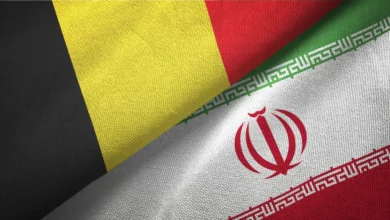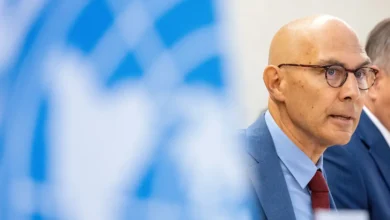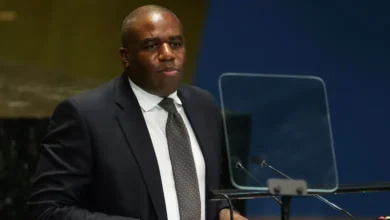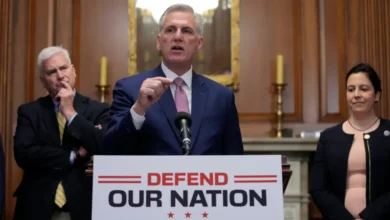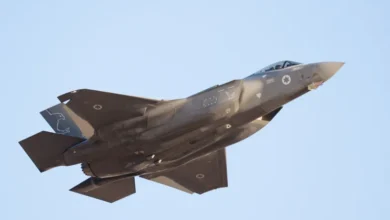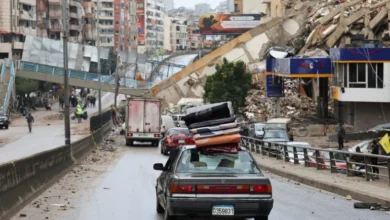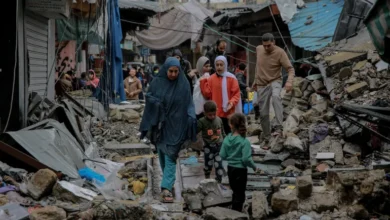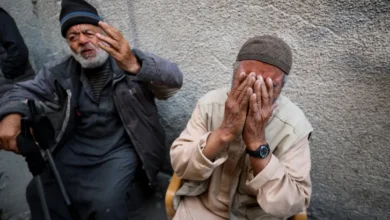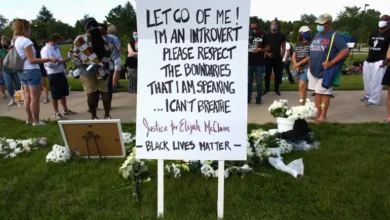Mozambique’s election: Who’s contesting and what’s at stake?
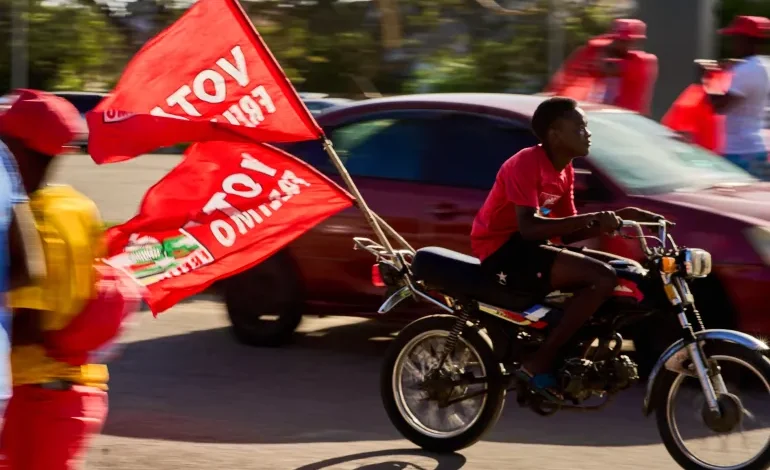
Mozambicans are heading to the polls to vote in elections that could, for the first time, usher in a president born after the country’s independence from Portuguese colonisers in 1975.
Some 17 million of the country’s population of 32 million are eligible to vote in the coastal, resource-rich Southern African country on Wednesday. Parliamentary and provincial elections in the 11 provinces will be held simultaneously.
President Filipe Nyusi, 65, of the governing Mozambique Liberation Front (Frelimo) party, will step down after eight years in office.
He could be the last of Frelimo’s pro-independence fighters-turned-presidents who were at the front lines of the brutal liberation war that saw thousands of Mozambicans killed.
Nyusi’s presidency is stained by a mega “tuna bond” corruption scandal (2013-2016) that saw high-level Frelimo members in government jailed – including a former finance minister convicted in the United States in August. Several politicians involved were found to have accepted bribes to arrange secret loan guarantees for government-controlled fishing companies.
Many of the country’s youth, though, say they are tired of the old system and want more jobs and security, amid high levels of poverty and an armed conflict in the north.
Here’s what to know about the elections:
Who is running?
There are four approved candidates for the presidency:
Daniel Chapo, 47
The newcomer politician is a favourite to win the elections because he has the advantage of Frelimo’s incumbency power, analysts say. Chapo only joined politics in 2011 but rose quickly to become Frelimo’s president in May 2024, following stints as a provincial governor in the southern coastal city of Inhambane. The politician claims that experience gives him an edge over his competitors.
During the six weeks of campaigning that officially closed on Sunday, Chapo distanced himself from the corruption-racked image of Frelimo. He also promised that peace would be restored to the Cabo Delgado province which is affected by years of armed conflict.
Chapo travelled to neighbouring South Africa in September to appeal to the large population of Mozambicans there who can vote abroad. He also met top leaders of South Africa’s main African National Congress (ANC) party – both Frelimo and the ANC see each other as allies, based on their histories of liberation struggles.
But many voters, especially young people, struggle to separate Chapo from the decay and corruption that has marked Frelimo’s 49 years in power, analysts say. In some parts of the country, Frelimo has become so hated that party members are booed at campaigns. The party is likely to win, some agree – but likely through fraud. Already, opposition parties are alleging that there are “ghost” voters on the electoral roll.
Ossufo Momade, 63
Momade is the leader of the opposition Mozambican National Resistance (Renamo), which boasts only 60 of 250 parliament seats, and just a few of the 65 municipalities.
In contrast to Chapo, Momade is still very much part of the old guard, having fought in the Mozambican civil war (1977-1992), during which Frelimo squared off against former rebel groups, including Renamo, which later transitioned into a political party.
Momade’s age has not watered his appeal among Renamo’s supporters in areas such as the northern Nampula. The politician is still hailed for being the Renamo leader who signed peace accords that brought the post-civil war Renamo rebellion (2013-2018) to an end in 2019.
The opposition leader gunned for the presidency in the 2019 elections, but secured only 21 percent of votes, compared with President Nyusi’s 73 percent. Momade contested the results and maintained the elections were fraudulent – as did European Union observers. Renamo officials also denounced municipal elections in October 2023 that saw Frelimo win in almost all locations.
Venancio Mondlane, 50
Nicknamed VM7, the charismatic Mondlane has secured a strong base among young Mozambicans – people aged 25 years and under make up two-thirds of the population.
Mondlane was a former Renamo deputy in the Mozambican House of Assembly, and unsuccessfully ran on the same platform for mayor of Maputo, the capital city, in 2023. However, he left Renamo when Momade did not step down.
Mondlane is running as an independent and is backed by the Democratic Alliance Coalition (CAD), a coalition of nine political groups. On social media posts, many of young Mozambicans say only Mondlane can guarantee change for the country. The excitement around him has some analysts worried about post-electoral violence – which is not uncommon in Mozambique.
Like his counterparts, Mondlane has promised to end violence in Cabo Delgado, create jobs and boost the healthcare system.
